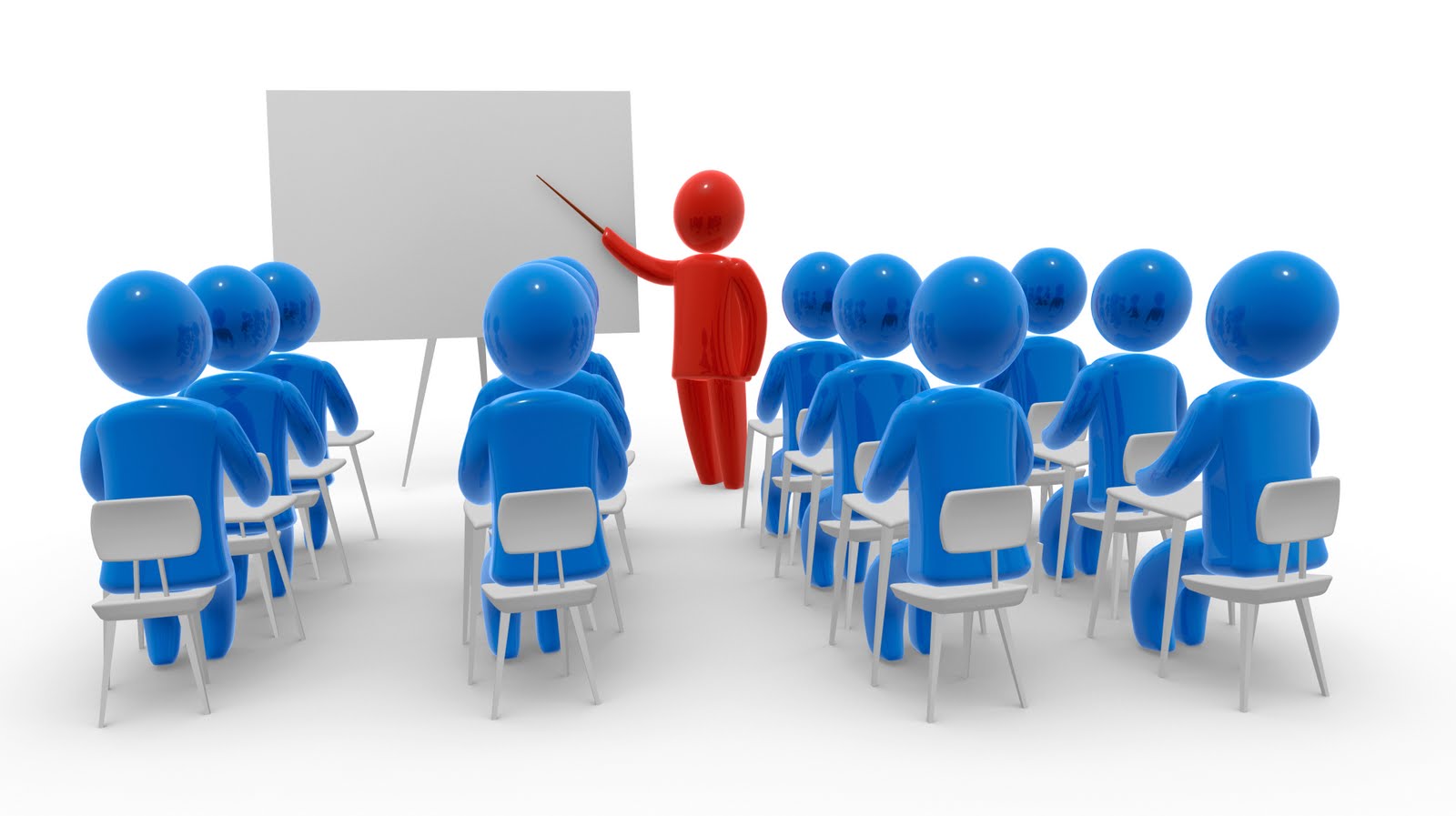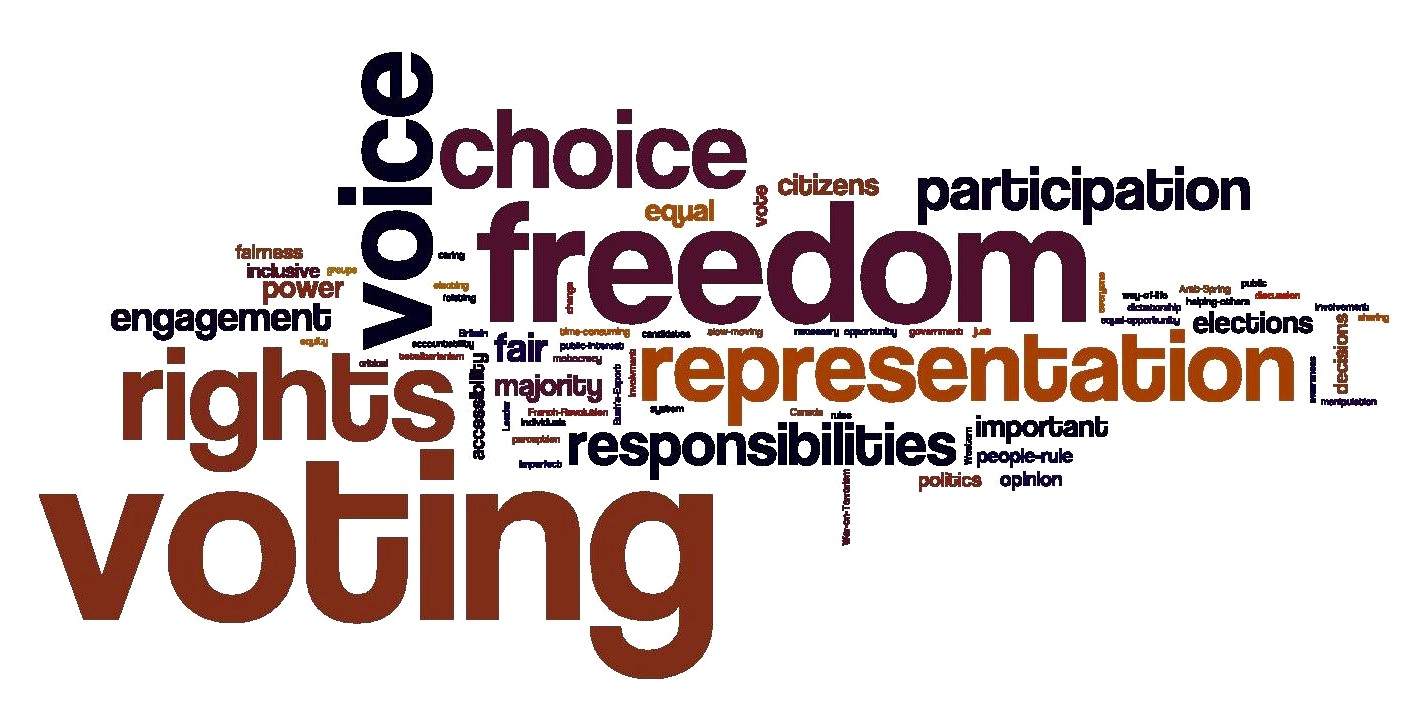(1) It pays special heed to the interests of common man:
In other forms of government special consideration is given to particular interests, but in democracy no special consideration is given to any class.
The interests of common people are considered supreme.
Thus, democracy is considered the best form of government.
(2) It is based on equality:
No special right is granted to any class of society in a democracy. All are considered equal and there is no discrimination on the basis of sex, colour, caste or creed.
In India, which is the largest democracy in the world any such discrimination has been completely abolished. In the United States of America, there used to be a discrimination between the black and the white.
The black Negroes were not treated well, but now they have been given equal rights in the society.
(3) It is the greatest upholder of the lofty ideals of liberty and fraternity:
The amount of liberty which one enjoys in a democracy is not found in any other forms of government. It is clear from the fact that through the state of emergency prevailed in India from October 26, 1962 to January 10, 1968, and fundamental rights were suspended, yet the opposition parties were given the rights to criticise the government and hold demonstrations.
On August 16, 1965 the Jana Sangh held a demonstration against the Kutch Agreement of the Government of India. Other parties also criticised the Kutch Agreement. Tashkent and Shimla agreements were also criticised by the opposition parties.
Before the advent of democracy in the world there were Aristocracies. Oligarchies, and tyrannical administrations, but in these types of governments, people had no rights and they were dependent on the mercy of the rulers. After centuries of struggle, they could get some rights from their rulers and established democracies to limit their powers. This is why the people are given fundamental rights under the constitution these days.
Secondly, in democracy stress is laid on the principle of world brotherhood. In a kingship and in Military and Fascist dictatorships, efforts are made to conquer other countries. Communist governments also believe in the expansionist policy.

Image Source: galdimechanicalscorp.com/wp-content/uploads/2014/06/History-of-statue-of-liberty-1.jpg
China has occupied 14,500 square miles of territory of India and Russia has established puppet governments in Hungary. Poland, East Germany, Czechoslovakia, Bulgaria, etc. The democratic governments, however, believe in the policy of co-existence and solve all the problems through peaceful means.
For this purpose, India signed the principles of Panch Sheel with China and placed the proposal of a Non-Aggression Pact before Pakistan. But because of their expansionist policy, both China and Pakistan completely violated these principles and invaded India.
(4) It is based on public opinion:
Professor Gettell has said that “Democracy transfers the basis of sovereignty from force to consent; and views the state as existing for the individual, rather than the individual as existing for the state. Personal liberty is, therefore, more likely to be legally safeguarded.
The strongest arguments in favour of democracy rest upon its importance in developing and elevating the masses of the people, in stimulating their interest in public affairs and stimulating their loyalty and trust in government in which they take active part.
Democracy thus serves as a training school for citizenship.” Thus, we can say that democracy is based on public opinion. Democracy provides maximum opportunity to the people in self-government, the representatives of the people run the administration in democracy. The legislature enacts laws according to the wishes of the people.
The Council of Ministers is responsible to the House of the People. Democratic government pays special attention to the interests of the people. According to Lowell, ‘in a complete democracy nobody can complain that he has been ignored.
(5) It minimizes the chances of revolution:
In a democracy there is a remote possibility of revolution, because:
(a) Public opinion is respected in it,
(b) Special attention is paid to the welfare of the people,
(c) No particular class is given any special right, and
(d) Everybody gets equal opportunity for self-development. Impartial elections take place after every four or five years, and the opposition parties get full opportunity to express their views freely. Thus, the opposition parties do not feel the necessity of removing the government by a violent revolution, when it can be removed by the use of ballot. Gilchrist has said, “Popular government is a government by common consent from its very nature. Therefore, it is not likely to be revolutionary.”
(6) It serves as a training school for good citizenship:
Democracy gives as training in discipline, love, sympathy, co-operation and benevolence. In democracy, the administration is in the hands of the representatives of the people, and they receive a sort of training.
(7) Democracy is an efficient form of Government:
In democracy the representatives of the people themselves run the administration and they are afraid of doing any wrong thing, because they are responsible to the Parliament and the people. They consult many experts in efficient running of the administration and pay special attention to the criticism of the press.

Image Source: muslim-academy.com/http://muslim-academy.com/wp-content/uploads/2014/08/Is-democracy-the-best-form-of-governance.jpg
For the fear of public opinion they check the government for spending lavishly and compel the government to follow the principle of economy. Government officials are recruited on the basis of competitive examinations and later on they are given adequate training.
They remain at their post till their retirement and they become experienced and efficient. Ministers have full control over them and they run the administration on their advice. The ministers arc to give reply in the Parliament to the questions relating to their respective departments. Thus the ministers give very efficient administration. Garner has rightly said, “Popular election, popular control and popular responsibility are more likely to ensure degree of efficiency than any system of government.”
(8) It raises the moral standard of the people:
In dictatorship and absolute monarchy, common people are considered incompetent, they are deprived of all the rights and they are not considered fit for providing leadership in the administration, but in democracy government believes that the people are the ultimate source of sovereignty and their leadership is essential. For this purpose, all adults are given the right of franchise. Elections are held periodically.
With this, people realize their power and sense of responsibility is inculcated among them, because election of wrong persons hits the administration badly. In this regards Bryce has said, “the member of the individual is dignified by his political enfranchisement and that he is usually raised to a higher level of the sense of duty which it throws upon him”.
In the words of John Stuart Mill, “It promotes a better and higher form of national character than any other polity whatever”. According to Lowell, “The best government in the long run is the one that nurtures a people strong in moral force, in integrity, industry, self-reliance and courage”. Since democracy fulfills all these conditions, this is the best form of government.
(9) It gives political education to the people:
In democracy, every adult has the right to vote. People have the right to contest elections without discrimination of caste, creed, property, sex, religion and education. Dissimilarity of views is tolerated in democracy and there is a freedom of expression and belief.
Therefore, many political parties emerge. In order to give political power to a particular party, elections are held periodically. At the time of elections every party propagates its programme among the people and the attention of the people is concentrated towards various political, economic and social problems.
At the time of election, the workers of political parties take the voters to polling stations and tell them about the way to cast the votes. In this way, people receive training in democracy. After elections, the majority party forms the government and other parties act as opposition parties.
When there are debates in the Legislature or in the Parliament, people go to visitors” gallery and listen to the debates. People also read the proceedings of legislatures and thus they receive adequate political education.
The representatives of the people who run the administration receive adequate political training. C.D. Burns has rightly said, “All Government is a method of education but the best education is self-education, therefore, the best government is self- government which is democracy”.
(10) It promotes patriotism and national unity and creates the interest of the people in the administration:
In democracy, citizens have a sense of participation in the government, as the government is run by the representatives elected by them. Participation in the government makes the people responsible and the spirit of patriotism is inculcated in them. Thus, they take keen interest in the administration.
There is no wide gulf between the government and the people and feel that they are the builders of their country. John Stuart Mill has said, “Democracy strengthens the love of the country because citizens feel that the Government is their own creation and the magistrates are their servants than masters.
There is a social unity in democracy:
Dewy has aptly said that, “Democracy is nearest to that social organisation in which individual and society has organic relation. Individual is an indivisible part of society like organs of the body. The individual experiences this organic unity more in democracy. He feels within himself the spirit of social will and sense. Every citizen participates n the sovereignty of the state.
Glaring example of this social and national unity is Chinese and Pakistani aggression on India. At the time of the Chinese aggression, our late Prime Minister Jawaharlal Nehru and at the time of Pakistani invasion, late Prime Minister Lal Bahadur Shastri and Mrs. Indira Gandhi appealed to the people for creating national unity and extending full co-operation to the government. All the people and political parties extended full co-operation to the government. They sank all differences and gave a wonderful evidence of national unity.
(11) Democracy is most suitable for social, economic, political and religious reforms:
In democracy administration is in the hands of tried leaders. They have full co-operation of the people and they are of very progressive views. Thus, with the cooperation of the people, they eradicate all evils and try to make the country powerful.
For example, Prime Minister Jawaharlal Nehru abolished Zamindari system with the co-operation of the people. He enacted the Hindu Code Bill and eradicated the centuries-old evil of untouchahility. Sardar Vallabhbhai Patel, after ending absolute regime of the princes, completed the integration and democratisation of Indian states.









